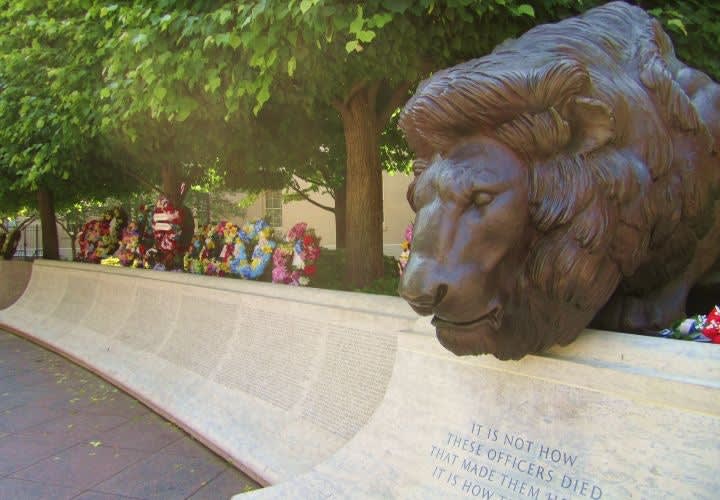As a recruit you are trained to be aware that during a shooting your sense of hearing is greatly diminished or lost and time feels like slow motion. Surroundings take on a surreal appearance. Distances may appear nearer or farther away depending on your perception of ability to control the situation.
Unlike television or movies where shoot-outs last minutes, in the real world the average gunfight involving law enforcement lasts only seconds. In the horrible events where officers have been lost to shootings, car accidents, or any of the other tragedies which have claimed their lives, those seconds don't end so quickly for those of us left behind. Actually they go on and on. You can feel it. Time becomes palpable. The collective pain is enormous. It doesn’t actually get better. It just gets crowded out by stuff in everyday life that seems to push it out of the way for a while.
I’m not telling you anything you don’t already know. We need to remember, though. Our job isn't like working in a bank. We need to remember our brothers and sisters who have died doing this. We need to remember that pain doesn't have a timeline. It isn't like playing a game with a definitive start and finish. Life has that luxury, but grief does not.
This past week in Washington D.C. during Police Week it is estimated that a record of over 22,000 people attended ceremonies at the Law Enforcement Officers Memorial. The names of the law enforcement officers honored on the two walls total 19,660 with another 300 to be added. The candlelight vigil starting off the week had a roll call for all of the officers lost during 2011. It’s grim. It hurts like nothing else, and if you can make it through it without crying I don't think you have a heart or guts. It takes a real man or woman to understand what the hell these families are going through.
I live in D.C. now and I regularly go to the memorial and follow what is happening with the progress on the museum. It is always a special place, but this week it was different. This week I saw a lot of my "family" I didn't even know. We can spot each other. It's the way we walk. It's the way we look at people to scan them and don't turn our backs to anyone except family. It's the way we linger at specific names on the wall and touch them after taking the best possible rubbing from it we could get to send to another squad mate back home. We trace our fingers over the letters, like that would somehow make the distance between the one we lost less. It’s the way we look for the wreaths to honor our fallen brothers and sisters and "get it" when we see their moms and dads there.
We get it, too, when we see the wife with children holding onto her hands as they look at the wall after taping "I love you Daddy" notes beneath his name. And more and more it's men coming to honor the female officers who have been lost in the line of duty.
Some people think female officers are more emotional than male officers. This may be so. I don't care. This week I don't think it mattered. All of our blood runs blue. Just like in a shooting, time felt like slow motion and the surroundings certainly had a surreal appearance. The biggest difference though was the sound. There really was a lot of silence. When the words came, we really listened. We really heard. I don’t think one single "I love you," or "I miss you," wasn't caught by someone.
Lori M. Connelly is a retired officer from a large police department in the Southwestern part of the United States who now lives in the D.C. area.
Related Articles:
Police Week 2012: Candlelight Vigil
Police Week Vigil Honors Sacrifice of Fallen Officers
Police Unity Tour Arrives at the National LEO Memorial













